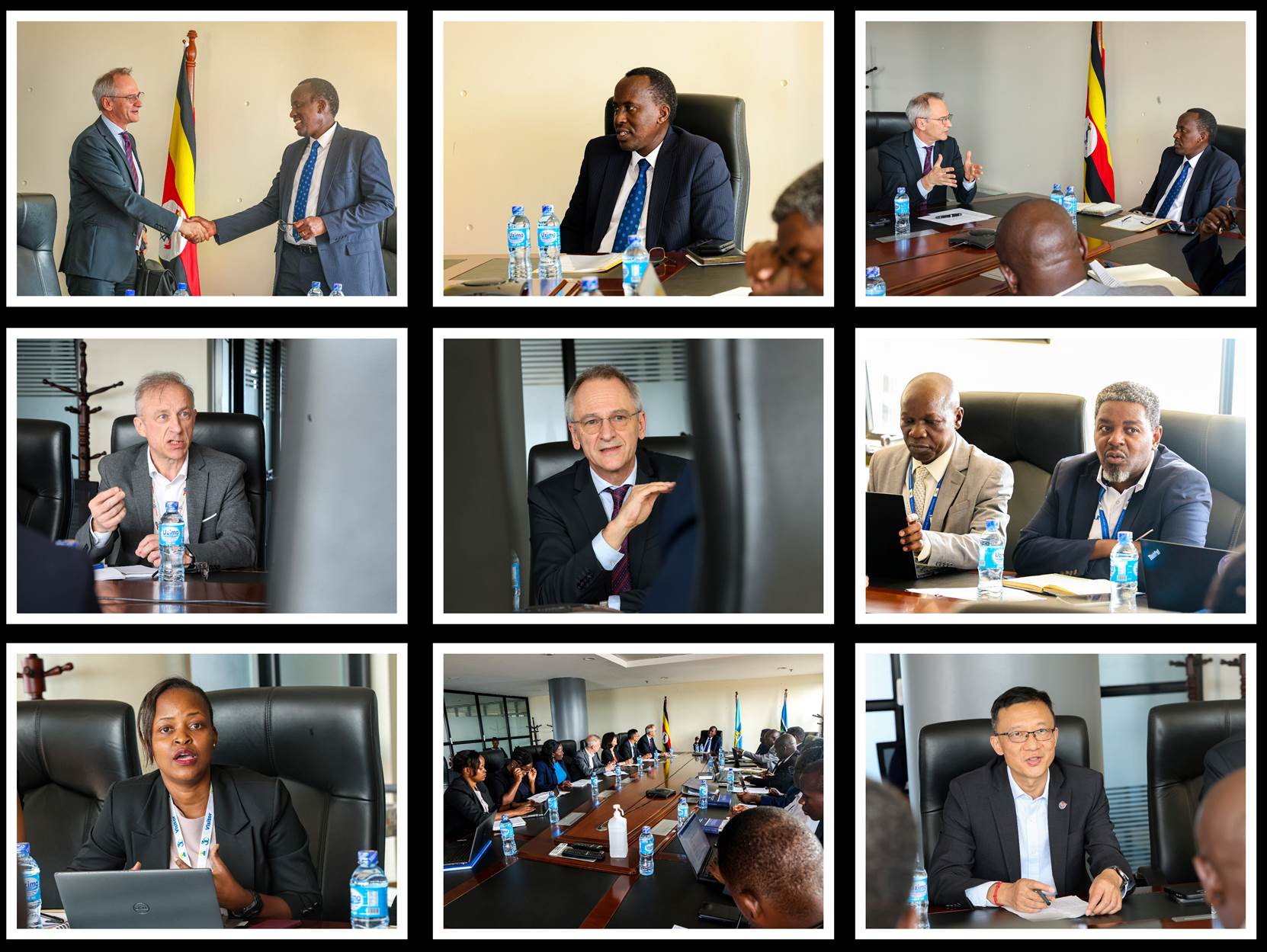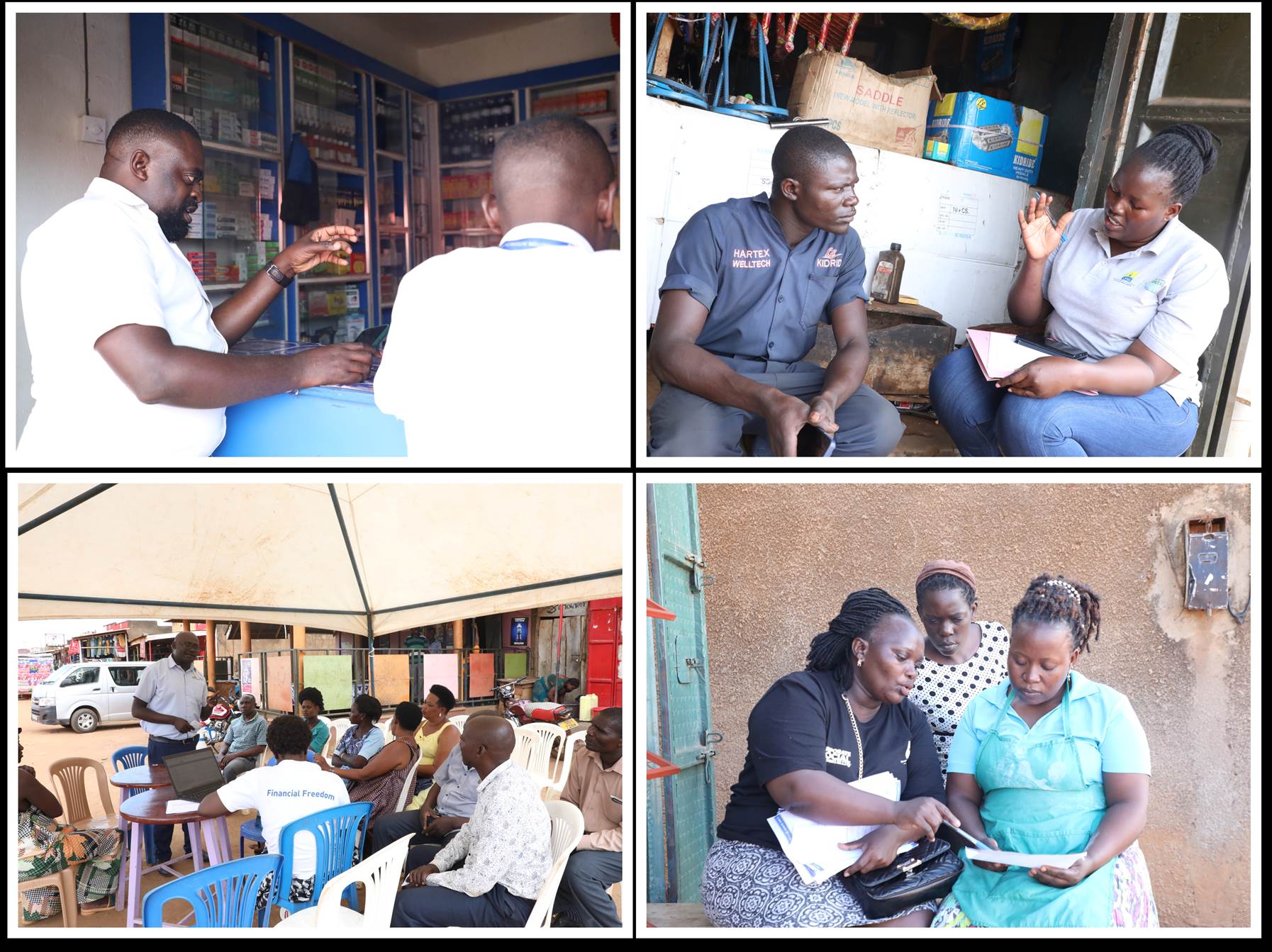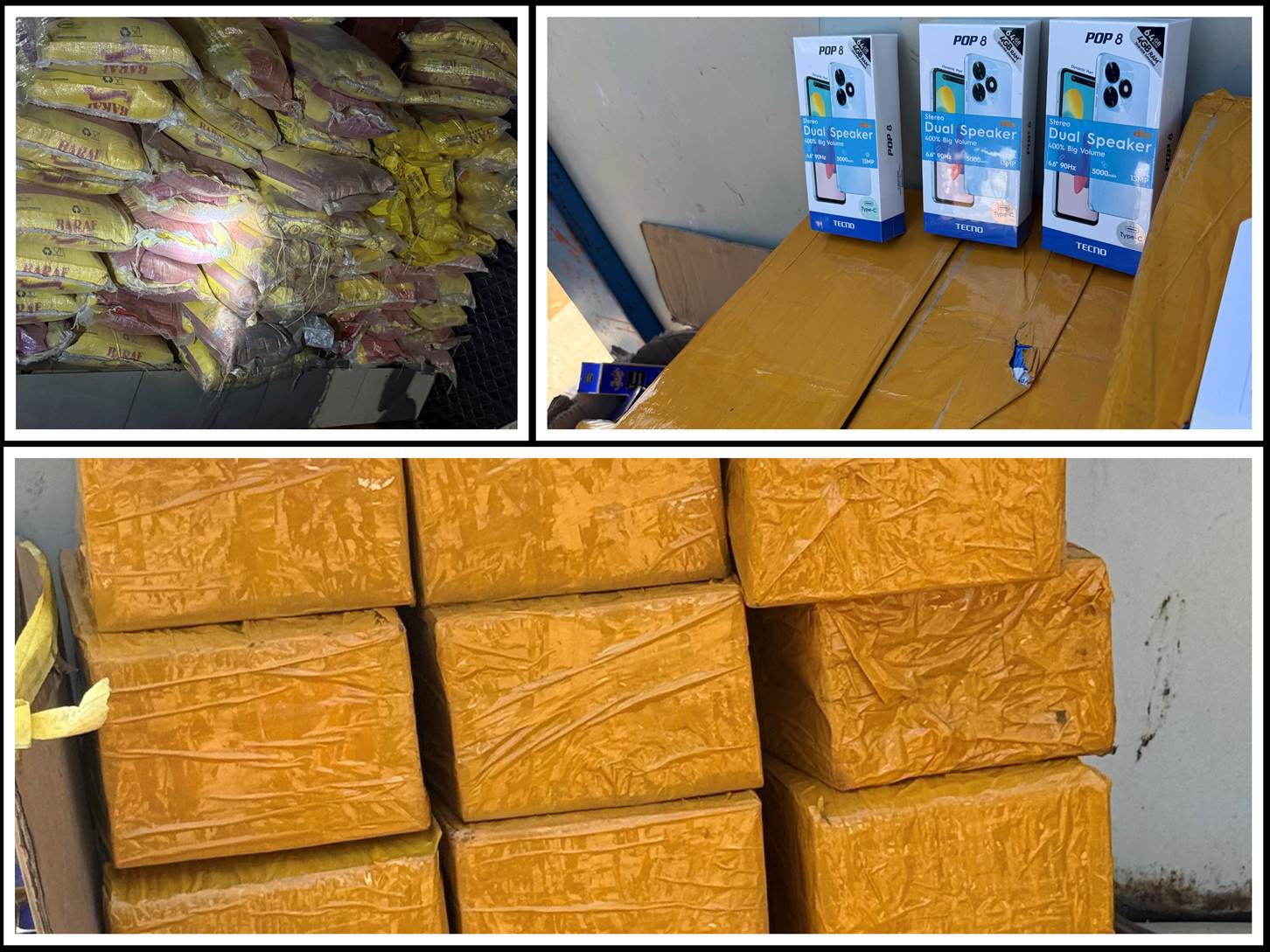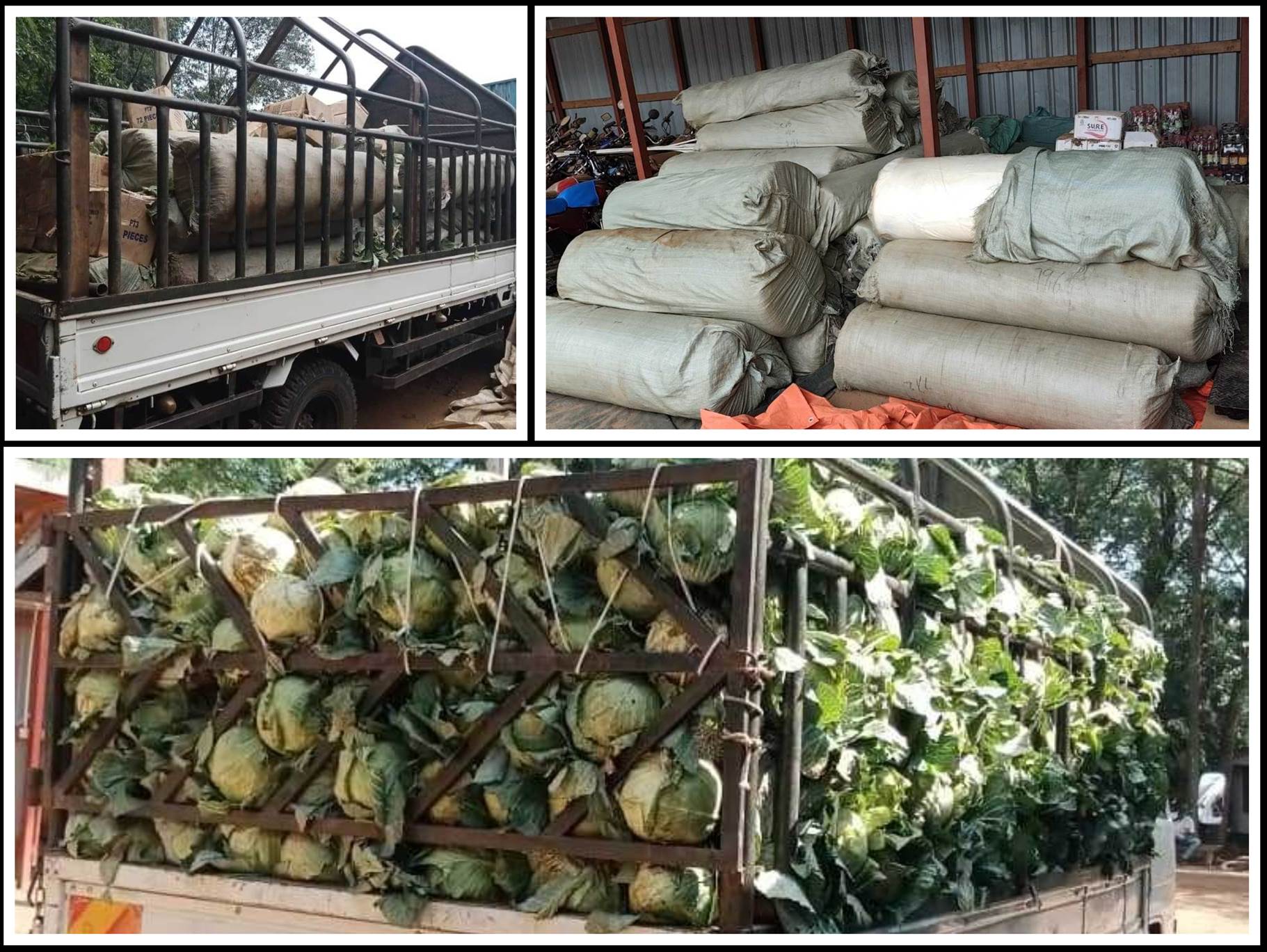


Dear Taxpayers,
Uganda Revenue Authority is pleased to present to you a booklet on Tax amendments for the FY 2022-23 containing amendments made in several tax laws.
In line with the budget theme of ‘Full Monetisation of Uganda’s Economy through Commercial Agriculture, Industrialisation, Expanding and Broadening Services, Digital Transformation and Market Access’, these changes are geared towards reinforcing Government’s commitment to import substitution, boosting local production, creation of employment, supporting local and foreign investment, easing the burden of tax compliance and encouraging compliance.
The amendments particularly seek to enable Uganda to grow its domestic tax revenue mobilization capabilities to see it financing a greater part of the National Budget to ultimately liberate Uganda from donor dependency.
Key among the amendments is improving taxpayer compliance on Value Added Tax (VAT) remittance and rental income tax remittance. There is also clarification on the treatment of income from transportation embarked outside Uganda.
To ease the administration of tax issues for both URA and the taxpayers, there is an increase in the number of members on the Tax Appeals Tribunal (TAT) which we expect will enhance the efficient and fair dispensation of tax appeals.
We also expect that the clarification on the adoption of the use of the tax stamps and electronic receipts or invoices will create a levelled ground for all players in the economy as we jointly mobilise revenue to develop our country.
We acknowledge the tough economic times in Uganda and beyond the country which has affected many individuals, businesses and the government through unprecedented inflation driven by post- COVID-19 shocks and global conflicts. We hope the amendments shall bolster our country’s capacity to overcome these adverse economic blows.
I urge you to remain patriotic, acquaint yourself with these amendments, benefit from them and where need be, reach out to all our offices countrywide for any additional support you may require. I wish you a successful Financial Year 2022/23.
Developing Uganda Together
John R. Musinguzi Commissioner General, URA
| No | AMENDMENT | JUSTIFICATION |
| 1. | Reviewed the definition of Beneficial Ownership: Beneficial ownership was first defined in 2019. The revised definition seeks to: (i) Replace the “final ownership” and “absolute control” tests with the ultimate control or ownership test; (ii) Eliminate the error in the current provision by separating the definition of a Beneficial Owner from the methodology of identifying beneficial owners. This lack of clarity between the definition and methodology renders the definition redundant and not aligned to the Financial Action Task Force (FATF) and OECD Standards which Uganda is required to align; (iii) Clarify the methodology for identification of Beneficial Owners for legal entities. Much as the current wording puts in place a methodology for trusts and similar arrangements, it completely stays silent on the identification of Beneficial owners for legal entities and partnerships; (iv) Provide for a group of beneficiaries who are not individually identified in the trust deed e.g. where the beneficiaries are identified as the sons of, the grandchildren, etc. | As Uganda prepares to participate in the Automatic Exchange of Information arrangement with other countries, this amendment seeks to align with the OECD requirements. Other countries have adopted the same criteria to guide the exchange of information for tax and non-tax purposes. This provides a framework for collecting and exchanging information that is consistent with internationally agreed policy and legal frameworks. |
| 2. | Amend the definition of an exempt organization to include a research institution whose object is not for profit. | The purpose is to extend the exempt organization status to research institutions whose object is not profit. |
| 3. | Amendment of the Rental Income Tax Regime to the effect that: COMPANIES • Companies earning rental income will claim gross rental income and without carrying forward any excess expenditures and losses; • Company rental income to be taxed at a flat rate of 30%. | This approach has been found effective in countries like Kenya for Residential rental owners earning below K shs.15 million annually. The goal of this amendment was to: • Create a simplified rental tax regime for individual taxpayers who generally do not keep records; • Increase the productivity of the tax among non- individual rental taxpayers. |
| 4. | Extending Bojanala Hydro Power Project exemption by one year. The Bojanala Hydro Power Project 5-year income tax exemption that was given in 2017 was due to end in June 2022. | Parliament allowed a one-year extension to June 2023 pending a cost/benefit analysis of the exemption. The exemption seeks to reduce the average electricity tariff of the Bujagali Hydro Power Project |
| 5. | Exempt income earned from transport not embarked in Uganda: To clarify that income from the transport of passengers or goods or mail embarked outside Uganda is not income derived from a Ugandan- source service contract, and therefore exempt | Good practice international tax policy practice guides that international transport for cargo and goods is taxed in the country of residence of the foreign transporter. However, in Uganda, such income may be taxed under Section 85(1) and (2). In addition, such a tax renders Uganda’s economy uncompetitive since the cost of all imports would increase by 15% as the transporters pass the cost of the tax to importers. |
| 6. | Supremacy of Income Tax Act (ITA) over the Tax Procedures Code Act (TPCA) on the penalties for petroleum and mining licensees who do not file returns. There was ambiguity on whether to apply the TPCA or ITA penalty for licensees in the petroleum and mining sectors. | To clarify the tax law and deter non-compliance |
| 7. | Amended the First Schedule of the Income Tax Act (Exempt entities) Added: International Development Law Organization (IDLO) to the First Schedule. Replaced: Department for International Development (DFID) WITH Foreign, Commonwealth and Development Office (FCDO). | IDLO supports Government bodies with legal advice without charge. DFID is now known as FCDO |
| No | AMENDMENT | JUSTIFICATION |
| 1 | Amended the definition of an exempt imported service: the revised definition states the principle that was passed by Parliament last financial year by clarifying the scope of the exemption on imported services. The clarification eliminates the unintended beneficiaries from the exemption e.g. entities making exempt supplies such as banks | To correct an error in drafting made in the tax amendments for 2021. To ensure fair treatment as the old wording exempted VAT on services when imported which would be standard rated when supplied locally. This has been changed such that there is equal treatment between locally supplied and imported services |
| 2 | Added supplies to Government to the Cash Basis Accounting; In this arrangement revenue and expenses are recognized when actual payments are received or paid. Usually, VAT taxpayers are expected to report on transactions on an accrual basis where a transaction is considered to have happened on the earliest date of: (i) delivering the goods or service; (ii) paying for the goods or services; or (iii) issuing the tax invoice. This has previously only been allowed to VAT-registered taxpayers with sales below UGX 500 million. | To enable suppliers to the government to only account for VAT after the government has paid for supplies. Previously the suppliers were required to account for such VAT even before the government has paid them which affected their cash flow. And where they delayed paying the tax due to the delay by the government to pay for the supplies, they were forced to accrue penal interest. |
| 3 | Amending the First Schedule of the VAT Act (Exempt entities). Added: International Development Law Organization (IDLO) to the First Schedule. Replaced: Department for International Development (DFID) WITH Foreign, Commonwealth and Development Office (FCDO). | IDLO supports Government bodies with legal advice without charge. DFID is now known as FCDO |
| 4 | Removed the requirement to develop a hospital to a national referral level, as a prerequisite for benefiting from the VAT exemption. There is an existing exemption on the supply of services to conduct a feasibility study, design, and construction; the supply of locally produced materials for the construction of premises and other infrastructure, machinery and equipment or furnishings and fittings to a hospital facility developer. The developer must have investment capital of at least five million United States Dollars and the hospital should be at the level of a national referral hospital with the capacity to provide specialized medical care. | To ease and increase the usage of the incentive by investors setting up hospitals. The requirement for the hospital to be at a national referral level required confirmation from the Ministry of Health which made the process of accessing the incentive complicated. |
| EXEMPT SUPPLIES | ||
| 5 | Exempt the supply of Oxygen for medical use | To ensure that the supply of assistive devices to PWDs is affordable |
| 6 | Exempt the supply of assistive devices for persons with disability. These assistive devices like hearing aids, orthotic devices, etc enable PWDs to conduct activities of daily living (e.g. talking, eating, bathing, dressing, toileting, and home maintenance). | To ensure that the supply of assistive devices to PWDs is affordable |
| 7 | Exempt the supply of airport user services charged by the Civil Aviation Authority (CAA) | To enhance Uganda’s competitiveness in East Africa as a tourist destination |
| 8 | Zero rate the supply of educational materials including educational materials manufactured in a Partner State of the East African Community (EAC). The VAT Act zero-rated educational materials manufactured in Uganda, the amendment seeks to, also zero-rate educational materials manufactured in the EAC | To fulfil the requirements of the East African Community (EAC) |
| 9 | Zero-rate the supply of menstrual cups. The existing VAT exemption on menstrual cups is repealed. Menstrual cups, just like tampons are now zero-rated including the inputs for their manufacture. | This will make menstrual cups affordable as the manufacturers are able to claim input VAT. |
| No | AMENDMENT | JUSTIFICATION |
| 1 | Amended the definition of an exempt imported service: the revised definition states the principle that was passed by Parliament last financial year by clarifying the scope of the exemption on imported services. The clarification eliminates the unintended beneficiaries from the exemption e.g. entities making exempt supplies such as banks | To correct an error in drafting made in the tax amendments for 2021. To ensure fair treatment as the old wording exempted VAT on services when imported which would be standard rated when supplied locally. This has been changed such that there is equal treatment between locally supplied and imported services |
| 2 | Added supplies to Government to the Cash Basis Accounting; In this arrangement revenue and expenses are recognized when actual payments are received or paid. Usually, VAT taxpayers are expected to report on transactions on an accrual basis where a transaction is considered to have happened on the earliest date of: (i) delivering the goods or service; (ii) paying for the goods or services; or (iii) issuing the tax invoice. This has previously only been allowed to VAT-registered taxpayers with sales below UGX 500 million. | To enable suppliers to the government to only account for VAT after the government has paid for supplies. Previously the suppliers were required to account for such VAT even before the government has paid them which affected their cash flow. And where they delayed paying the tax due to the delay by the government to pay for the supplies, they were forced to accrue penal interest. |
| 3 | Amending the First Schedule of the VAT Act (Exempt entities). Added: International Development Law Organization (IDLO) to the First Schedule. Replaced: Department for International Development(DFID) WITH Foreign, Commonwealth and Development Office (FCDO). | IDLO supports Government bodies with legal advice without charge. DFID is now known as FCDO |
| 4 | Removed the requirement to develop a hospital to a national referral level, as a prerequisite for benefiting from the VAT exemption. There is an existing exemption on the supply of services to conduct a feasibility study, design, and construction; the supply of locally produced materials for the construction of premises and other infrastructure, machinery and equipment or furnishings and fittings to a hospital facility developer. The developer must have investment capital of at least five million United States Dollars and the hospital should be at the level of a national referral hospital with the capacity to provide specialized medical care. | To ease and increase the usage of the incentive by investors setting up hospitals. The requirement for the hospital to be at a national referral level required confirmation from the Ministry of Health which made the process of accessing the incentive complicated. |
| EXEMPT SUPPLIES | ||
| 5 | Exempt the supply of Oxygen for medical use | Medical goods and services are exempted from VAT |
| 6 | Exempt the supply of assistive devices for persons with disability. These assistive devices like hearing aids, orthotic devices, etc enable PWDs to conduct activities of daily living (e.g. talking, eating, bathing, dressing, toileting, and home maintenance). | To ensure that the supply of assistive devices to PWDs is affordable |
| 7 | Exempt the supply of airport user services charged by the Civil Aviation Authority (CAA) | To enhance Uganda’s competitiveness in East Africa as a tourist destination |
| ZERO-RATED SUPPLIES | ||
| 8 | Zero rate the supply of educational materials including educational materials manufactured in a Partner State of the East African Community (EAC). The VAT Act zero-rated educational materials manufactured in Uganda, the amendment seeks to, also zero-rate educational materials manufactured in the EAC | To fulfil the requirements of the East African Community (EAC) |
| 9 | Zero-rate the supply of menstrual cups. The existing VAT exemption on menstrual cups is repealed. Menstrual cups, just like tampons are now zero-rated including the inputs for their manufacture. | This will make menstrual cups affordable as the manufacturers are able to claim input VAT. |
| No | AMENDMENT | JUSTIFICATION |
| 1 | Change of the effective date of expiry of all tax agents’ registration to 31st December every calendar year irrespective of their registration commencement date | To match with customs agents’ expiry window and harmonize the renewal timelines |
| 2 | Imposing a penal tax that is double the tax due on the goods or Uganda Shillings fifty Million (UGX 50,000,000) whichever is higher on any person who fails to activate a tax stamp on locally manufactured or imported goods. | To encourage activation of tax stamps |
| 3 | Temporary closure of businesses that do not comply with the requirements of electronic receipting and invoicing or tax stamps after receiving a URA notice of the intention to close the business. | To ensure compliance with the EFRIS system and tax Stamps. |
| 4 | Requirement for persons in construction or extractive industries to disclose all contractors to be used in conducting all operations within 7 days from the date of signing of the contract and introduction of a penalty of UGX 20 million for failure to comply. | To widen the tax base by bringing more persons into the tax bracket |
| 5 | Increased the penalty for making false or misleading statements from UGX 4M UGX to UGX 110M | To encourage voluntary compliance |
| PAYMENT OF INFORMERS | ||
| 6. | • Exclusion of URA staff as whistle-blowers/ informers. • Revision of the scope of informers and their reward to include persons who provide information leading to; i. identification of unassessed tax or duty and the reward is the lesser of 1% or UGX 15M ii. recovery of unassessed tax or duty and the reward is the lesser of 5% or UGX 100M | To encourage voluntary compliance |
| OFFENCES RELATING TO EFRIS AND TAX STAMP | ||
| 7. | A fine of 1500 Currency points/imprisonment not exceeding 10 years or both for; • Failure to fix or activate tax stamps • Forgery of an EFRIS invoice • Printing over or defacing tax stamps • Interfering with an EFRIS control device • Forgery of tax stamps • Failure to use EFRIS Note: Currency point = UGX 20,000 | To encourage voluntary compliance |
| OFFENCES RELATING TO EFRIS AND TAX STAMP | ||
| 8 | A fine of 2,500 Currency points for each day in default or imprisonment not exceeding ten years; • Failure to file an information return relating to automatic exchange of information. • Failure to maintain records for purposes of automatic exchange of information • Making a false or misleading statement in the information return • Omitting from a statement made in the information return Note: Currency point = UGX 20,000 | To encourage voluntary compliance and support implementation of the global Automatic Exchange of Information regime. |
| No | AMENDMENT | JUSTIFICATION |
| 1. | Increasing the number of the Tax Appeals Tribunal members from four (4) to eight (8) members. | The increase in the members of the TAT is intended to improve the efficiency and objectivity of the TAT. |
| No | AMENDMENT | JUSTIFICATION |
| 1 | NIL stamp duty on an AGREEMENT relating to the deposit of title- deeds, pawn pledge – of the total value: The instrument AGREEMENT relating to deposit of title- deeds, pawn pledge – of the total value is primarily used when movable chattels like motor vehicles are used as security in getting a loan. Hitherto the stamp duty payable was 1% of the loan amount secured by the motor vehicle. | • To ease access to credit by reducing the cost of stamp duty. • As part of the 2020 COVID-19 tax waivers, stamp duty on most loan instruments like loan agreements, debentures, and equitable mortgages was made nil. However, the stamp duty relating to the deposit of title remained at 1%. The amendment extends the same treatment to this instrument as is the case for most other loan instruments to ease access to credit. |
| 2 | NIL stamp duty on Agricultural Insurance Policies: This makes Agricultural Insurance Policies pay NIL duty. Currently, each agricultural insurance Policy pays stamp duty of UGX 35,000 per policy. | • To support the growth and recovery of the agricultural sector by reducing the cost of agricultural insurance. |
| 3 | NIL stamp duty on SECURITY BOND OR MORTGAGE DEED executed by way of security for the due execution of an office, or to account for money or other property received by virtue of security bond or mortgage deed executed by a surety to secure a loan or credit facility– of entry total value: Hitherto the stamp duty payable was 1% on the loan instrument. | • To ease access to credit by reducing the cost of stamp duty • As part of the 2020 COVID-19 tax waivers, stamp duty on most loan instruments like loan agreements, debentures, and equitable mortgages was made nil. However, the stamp duty relating to the deposit of title remained at 1%. The amendment extends the same treatment to this instrument as is the case for most other loan instruments to ease access to credit |
| 4 | Reducing the threshold for the investor incentive: The investment threshold has been reduced to USD 35 million from USD 50 million for stamp duty exemption on certain instruments for manufacturers who meet the specified criteria. | investment in manufacturing by reducing the exemption requirement. There is a current stamp duty exemption on certain instruments for a manufacturer who has the capacity to use at least seventy percent of the locally produced raw materials and employs at least seventy percent citizens with an aggregate wage of at least seventy percent of the total wage bill of the new manufacturer and whose investment capital is at least fifty million United States Dollars. |
| 5 | Clarifying stamp duty on the transfer from a holder of letters of administration or probate to a beneficiary to be UGX 15,000: | • To ensure that there is no dissipation of assets of the estate in transferring property to the beneficiary. |
| No. | HS CODE | DESCRIPTION | ILLUSTRATION | DECISION | COMMENTS |
| 1. | Fabrics as per the attach- ment Annex II (Legal Notice No. EAC/118/2021) | Various tariff lines across all fabrics regardless of what is made by local players and or imported as per Annex II |  | Grant Uganda a stay of application of the EAC CET rate of 0%, 10% and 25% and apply a duty rate of 35% or USD 3.0/ kg whichever | This is intended to promote the textile sector in Uganda |
| 2. | Garments as per the attach- ment Annex III (Legal Notice No. EAC/119/2021) | Various tariff lines across all garments regardless of what is made by local players and or imported as per Annex III | Grant Uganda a stay of application of the EAC CET rate of 0%, 10%, and 25% and apply a duty rate of 35% or USD 3.5/ kg whichever is higher for one year. | This is intended to promote the textile sector in Uganda. | |
| 3. | 3917.40.00 | PVC Trucking Fittings |  | Grant Uganda a stay of application of the EAC CET rate of 25% and apply a duty rate of 35% for one year | Promotion of local content |
| 4 | 1511.90.90 | Edible Palm Oil |  | Import duty is applicable at a rate of 35% instead of 25% for one year | To protect local industries and promote import substitution. |
| 2201.10.00 | Waters, including mineral waters and aerated waters, containing added sugar or other sweetening matter or flavoured |  | Import duty is applicable at a rate of 35% instead of 25% for one year. | This is in line with the current EAC Common External Tariff review where the maximum rate of 35% is being proposed for the EAC region. | |
| 4015.12.00 4015.19.00 4015.90.00 | Surgical and other Gloves |  | Import duty is applicable at a rate of 10% instead of 0% for one year | Promote local manufacturing | |
| 3926.90.90 | Other articles of plastics and articles of other materials (Compositing dry toilets) | 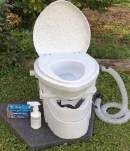 | Import duty applicable at a rate of 10% instead of 25% for one year | Sanitation improvement and faecal waste management | |
| 8417.94.00 | Brakes, including coaster braking hubs and hub brakes, and parts thereof motorcycle brake shoes. | 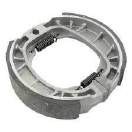 | Import duty applicable at a rate of 25% instead of 10% for one year | Protect local industries and promote import substitution |
| No. | HS CODE | DESCRIPTION | ILLUSTRATION | DECISION | COMMENTS |
| 1 | 4823.69.00 4804.19.90 3920.69.90 3921.90.00 4821.10.90 | Other paper, paperboard, Uncoated Kraft paper and paperboard, other plates, sheets, film, foil and strip, of plastics, Paper or paperboard labels of all kinds, whether or not printed. Packaging materials and raw materials used in the manufacture of surgical and medical examination Gloves |   | Grant Uganda a remission of duty from 35%, 25% and 10% to apply a duty rate of 10% and 0% respectively for one year. | These are packaging materials and raw materials used in the manufacture of surgical and examination medical gloves. |
| 2 | 3815.90.00 | Catalytic preparations for the manufacture of foam and spring mattresses |  | Granted remission of duty from 10% to apply a duty rate of 0% for one year for the manufacture of foam and spring mattresses. | Promote local manufacturing |
| 3 | 7320.90.00 | Other springs and leaves for the manufacture of foam and spring mattresses | 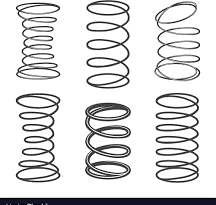 | Granted remission of duty from 25% to 10% for one year for the manufacturers of foam | Promote local manufacturing |
| 4 | 8481.90.00 | Valves and their corresponding component parts used for the manufacture of motorcycle tubes |  | Granted a remission of duty to apply a duty rate of 0% for one year. | Promote local manufacturing |
| 5 | 6813.81.00 8708.30.00 3506.99.00 | Brake linings and pads, Brakes and servo-brakes; parts thereof; Other Adhesive Glues Raw materials for the manufacturers of motorcycle brake shoes | Grant Uganda a remission of duty to apply a duty rate of 0% for one year. | Promote local manufacturing |
| NO | DESCRIPTION | ILLUSTRATION | RATE AND COMMENT |
| 1. | Dairy products | 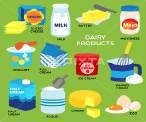 | 35% |
| 2. | Meat products | 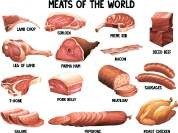 | 35% |
| 3. | Cereals |  | 35% |
| 4. | Cotton and Textiles |  | 35% Note: Uganda was granted a stay of application of the EAC CET rate of 0%, 10% and 25% and apply a duty rate of 35% or USD 3.0/kg whichever is higher for one year. |
| 5. | Iron and steel Products |  | 35% |
| 6. | Edible oils |  | 35% |
| 7. | Beverages and spirits |  | 35% |
| 8. | Furniture |  | 35% |
| 9. | Leather products |  | 35% |
| 10. | Fresh-cut flowers |  | 35% |
| 11. | Fruits and nuts 35 |  | 35% |
| 12. | Sugar and confectionery |  | 35% |
| 13. | Coffee, tea and spices |  | 35% Note: Uganda was granted a stay of application of the EAC CET rate of 0%, 10% and 25% and apply a duty rate of 35% or USD 3.0/kg whichever is higher for one year. |
| 14. | Textiles and garments |  | 35% |
| 15. | Head gears |  | 35% |
| 16. | Ceramic products |  | 35% |
| 17. | Paints |  | 35% |










